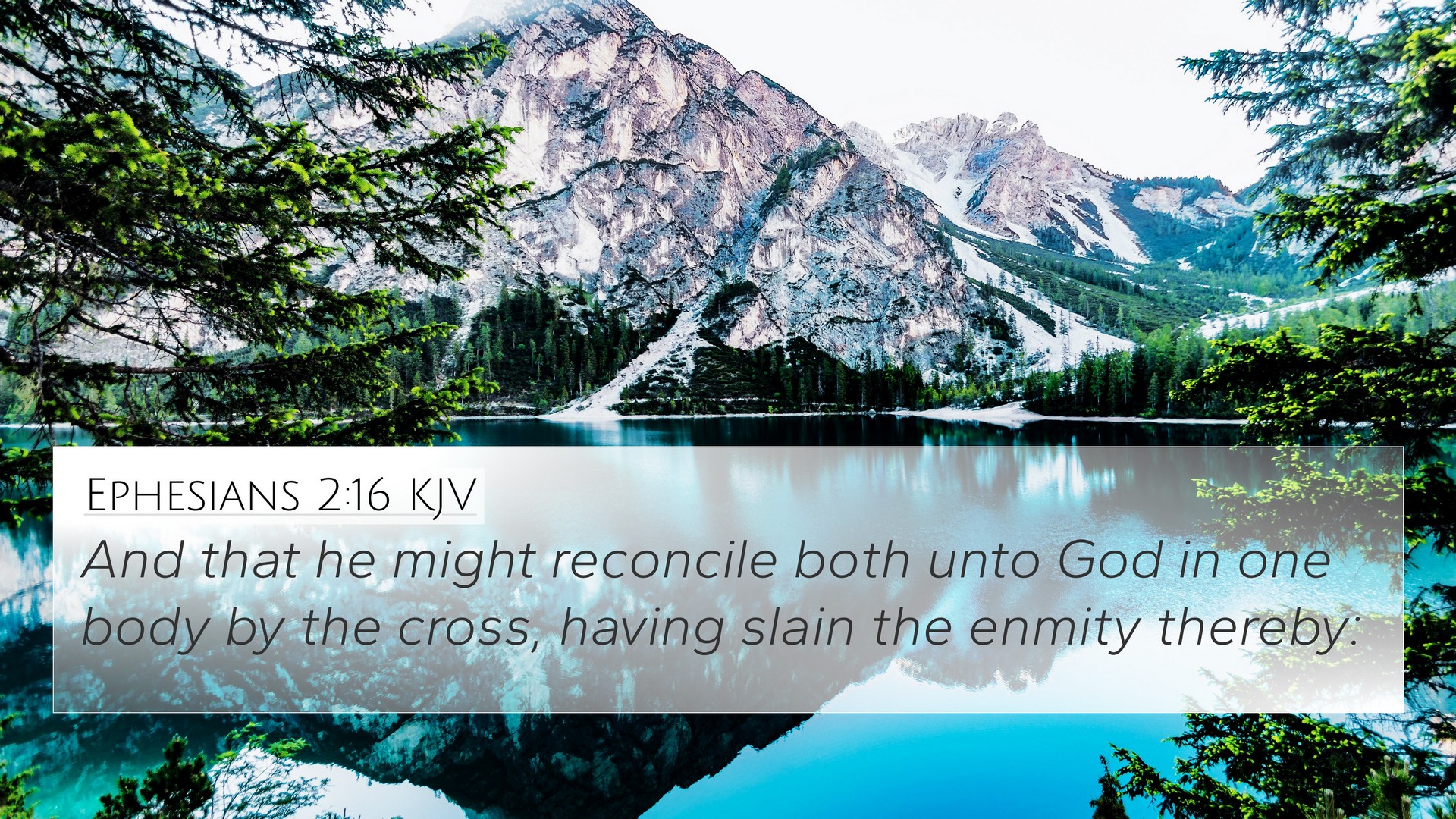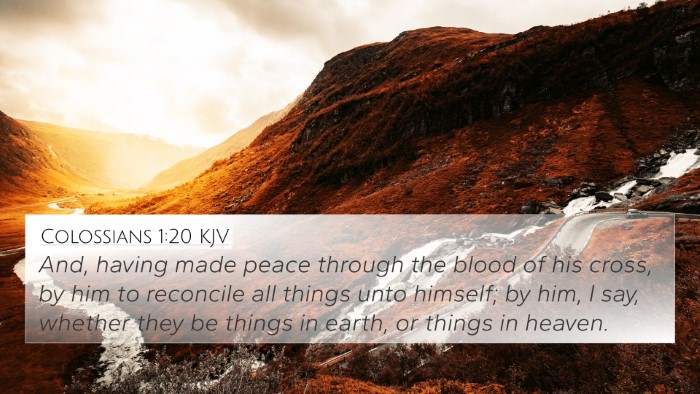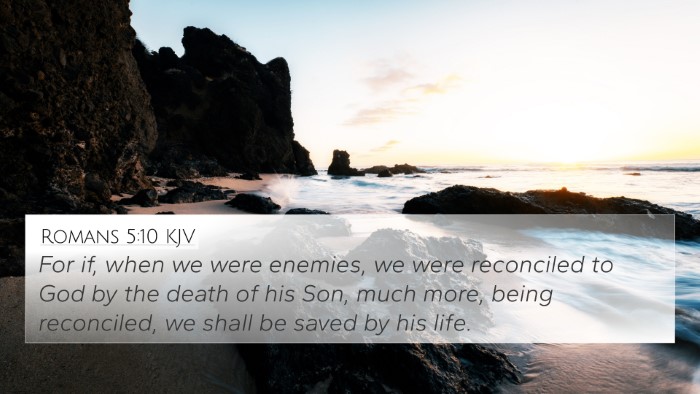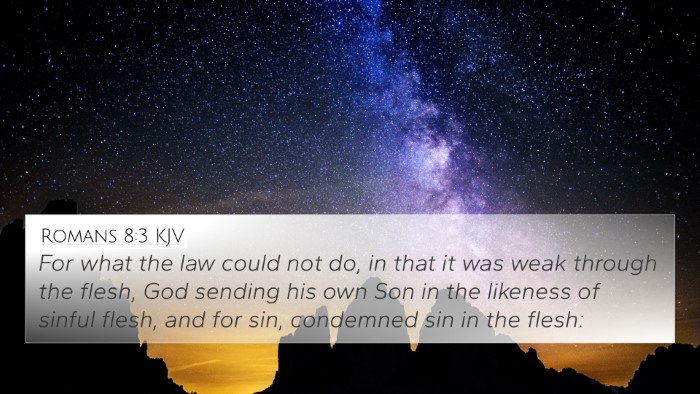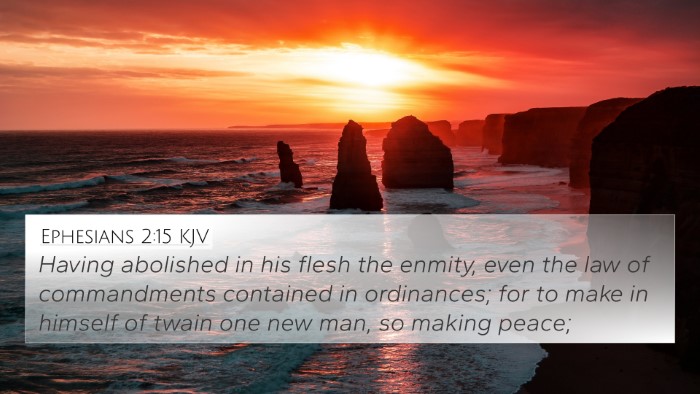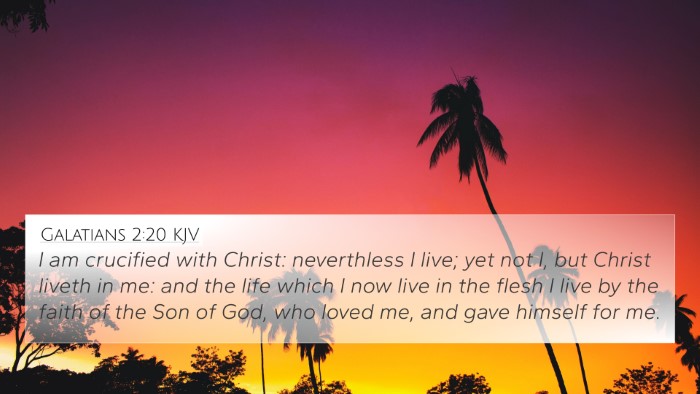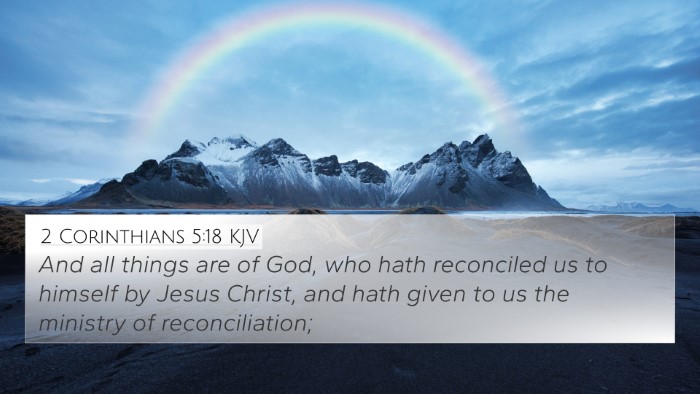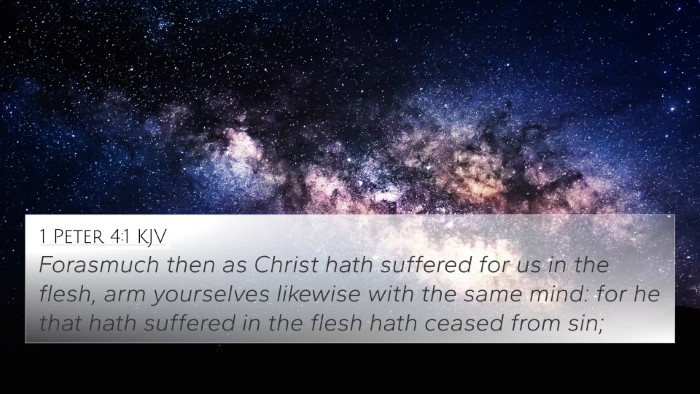Ephesians 2:16 - Summary and Interpretation
The verse Ephesians 2:16 states:
“And that he might reconcile both unto God in one body by the cross, having slain the enmity thereby.”
This verse encompasses critical themes such as reconciliation, unity, and the salvific work of Christ through the cross. Below are insights derived from public domain commentaries to enhance understanding.
Meaning of Ephesians 2:16
Ephesians 2:16 conveys the significance of Christ's sacrificial death on the cross as the means to bring reconciliation between Jews and Gentiles, and ultimately, all humanity to God. This entails a breakdown of the barriers that separate people from God and from one another. The emphasis on 'one body' suggests the creation of a new community in Christ, overcoming previous antagonisms and divisions.
Key Insights from Commentaries
-
Matthew Henry:
Henry elaborates on the transformative power of the cross in establishing peace. He notes that Jesus Christ's work abolished the enmity that existed due to sin and cultural separations, uniting diverse groups under a single divine purpose.
-
Albert Barnes:
Barnes emphasizes the term "reconcile," indicating that it signifies a restoration of a relationship that had been fraught with conflict. He underscores that this reconciliation is comprehensive, affecting not just individuals but entire communities who come to faith in Christ.
-
Adam Clarke:
Clarke points out that this reconciliation is not just a reaction but a proactive movement by God to unify humanity. He stresses that it was accomplished through Jesus’ atoning sacrifice, highlighting the cross as the focal point of divine love and justice.
Thematic Bible Verse Connections
To fully grasp the implications of Ephesians 2:16, several related scripture passages can be cross-referenced:
- Colossians 1:20: "And, having made peace through the blood of his cross, by him to reconcile all things unto himself..." - This verse parallels the reconciliation theme, affirming the cross as central to restoring relationships.
- Romans 5:10: "For if, when we were enemies, we were reconciled to God by the death of his Son..." - Here, the idea of being reconciled while still in a state of enmity exemplifies God’s grace.
- 2 Corinthians 5:18: "And all things are of God, who hath reconciled us to himself by Jesus Christ..." - This verse affirms that reconciliation is an act initiated by God through Christ.
- Galatians 3:28: "There is neither Jew nor Greek, neither bond nor free, neither male nor female: for ye are all one in Christ Jesus." - This verse links to the unity aspect emphasized in Ephesians 2:16.
- John 10:16: "And other sheep I have, which are not of this fold: them also I must bring, and they shall hear my voice..." - Suggests inclusivity and the expansive reach of Christ’s mission.
- Hebrews 10:19-22: "Having therefore, brethren, boldness to enter into the holiest by the blood of Jesus..." - Points to the access believers have to God because of the sacrificial work of Christ.
- 1 Peter 2:24: "Who his own self bare our sins in his own body on the tree..." - This echoes the sacrificial theme of the cross tied to reconciliation and healing of the relationship with God.
Interpretative Analysis
The implications of Ephesians 2:16 reach beyond individual salvation; they underscore a profound theological statement about the nature of the church as the body of Christ. The term "one body" suggests that through Christ, all believers, regardless of ethnic or social backgrounds, are unified into one entity that reflects the diverse yet unified nature of the body of Christ. This unity is a testament to the effectiveness of the cross in tearing down barriers and fostering peace.
Tools for Bible Cross-Referencing
Engaging with tools for Bible cross-referencing enhances the understanding of themes presented in passages like Ephesians 2:16. Several resources include:
- Bible concordances that index verses by topics or keywords.
- Bible cross-reference guides that help in identifying scripture connections.
- Cross-reference Bible study methods for systematic exploration of related scriptures.
- Comprehensive Bible cross-reference materials for extensive study use.
Cross-Referencing Themes in the Bible
Understanding how to leverage cross-references in the Bible involves recognizing connections between Old and New Testament writings. This practice allows one to see the cohesive narrative of reconciliation and the importance of community in faith that permeates scripture.
Conclusion
Ephesians 2:16 serves as a powerful reminder of Christ's work of reconciliation and unity. Exploring this verse through various commentaries and related scriptures sheds light on the profound nature of God's plan for humanity. Utilizing tools for cross-referencing can facilitate a deeper understanding of similar themes throughout the Bible, enabling believers to appreciate the interconnectedness of scriptural teachings.
